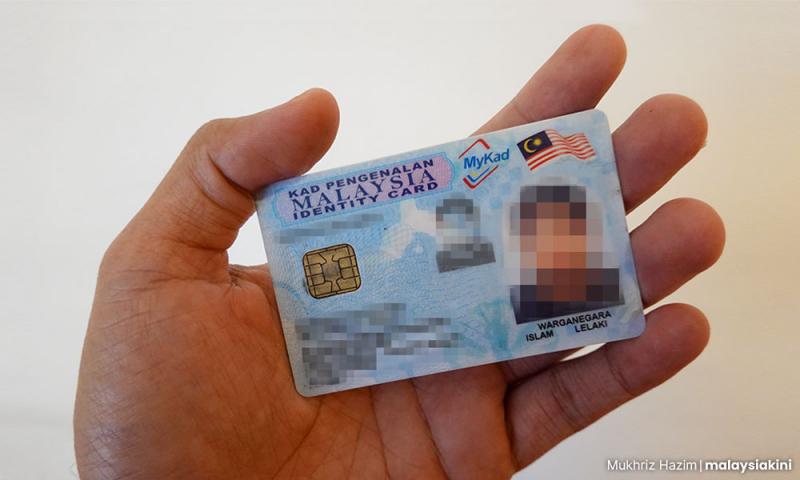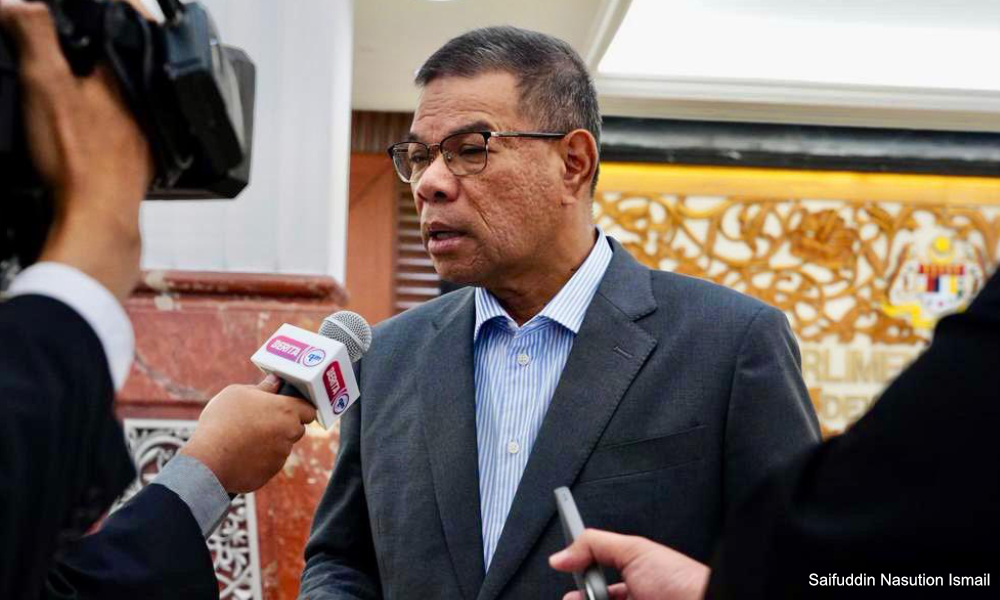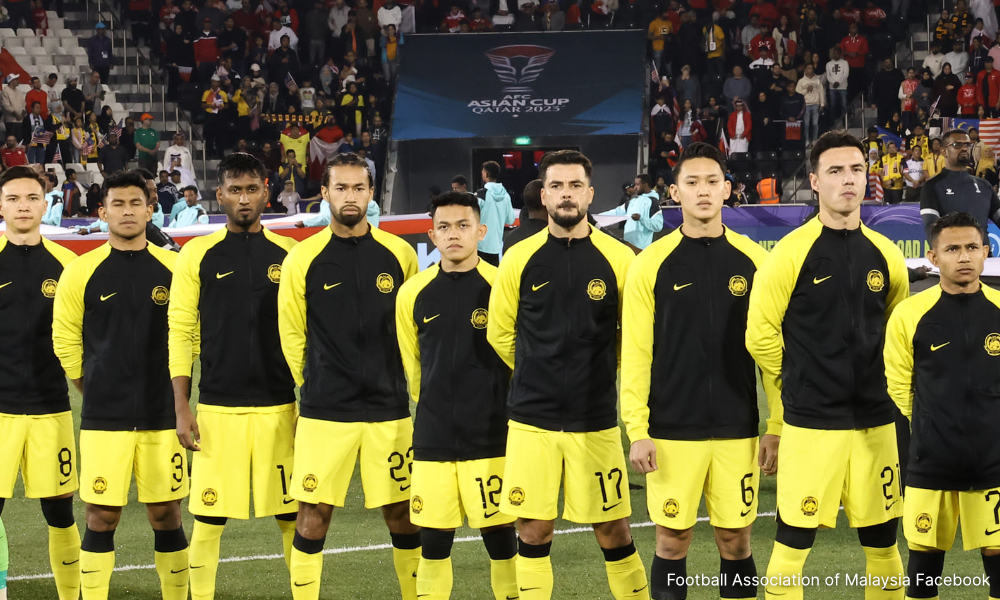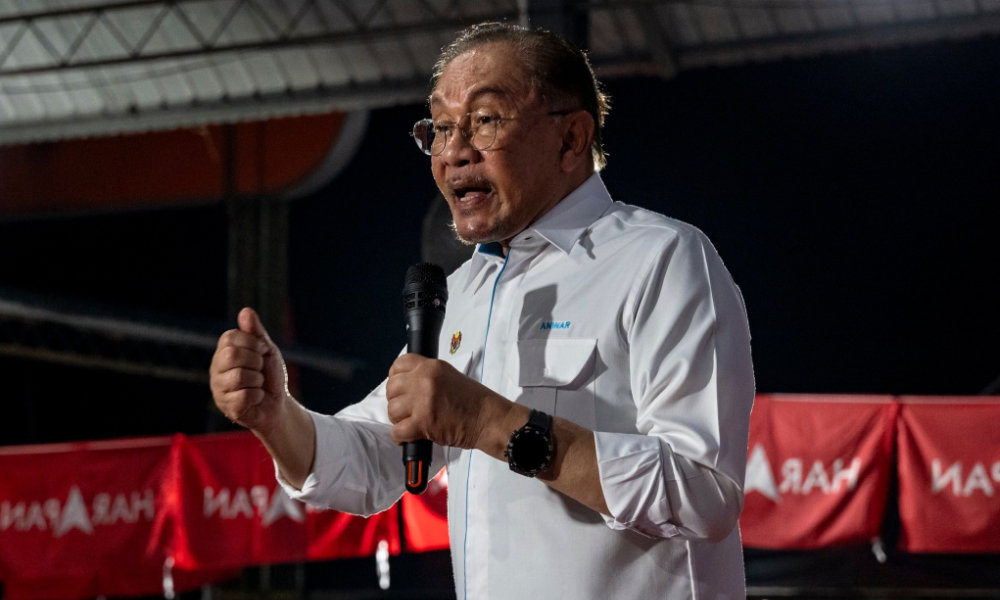

R Nadeswaran
Published: Oct 2, 2025 12:50 PM
Updated: 2:50 PM
COMMENT | Two weeks after the national football team’s controversial win over Vietnam in June, three high-achieving students - all born and raised in Malaysia - made impassioned emotional pleas to resolve their citizenship status.
Virman Juri, a 26-year-old with two degrees, is fighting for recognition as a citizen. Similarly, Keshwin Iswar Satkunavel, 19, who scored 4As in STPM, and Mathish, 17, with 10As in SPM, have seen their chances of entering public universities devastated by revoked citizenship.
Their youth and potential contrast sharply with former Border Scouts Basar Arun and Joseph Pengiran, who served during the mid-1960s Confrontation. They waited over 50 years for citizenship, receiving their MyKads only this year at ages 85 and 79.
Home Minister Saifuddin Nasution Ismail attributed such delays to the ministry’s “vigorous procedures”, asserting that all applications undergo thorough review.
He confirmed that the naturalised football players sanctioned by Fifa were granted citizenship after a comprehensive vetting process - a stance echoed by the National Registration Department (NRD), which emphasised that support letters do not guarantee approval.
Published: Oct 2, 2025 12:50 PM
Updated: 2:50 PM
COMMENT | Two weeks after the national football team’s controversial win over Vietnam in June, three high-achieving students - all born and raised in Malaysia - made impassioned emotional pleas to resolve their citizenship status.
Virman Juri, a 26-year-old with two degrees, is fighting for recognition as a citizen. Similarly, Keshwin Iswar Satkunavel, 19, who scored 4As in STPM, and Mathish, 17, with 10As in SPM, have seen their chances of entering public universities devastated by revoked citizenship.
Their youth and potential contrast sharply with former Border Scouts Basar Arun and Joseph Pengiran, who served during the mid-1960s Confrontation. They waited over 50 years for citizenship, receiving their MyKads only this year at ages 85 and 79.
Home Minister Saifuddin Nasution Ismail attributed such delays to the ministry’s “vigorous procedures”, asserting that all applications undergo thorough review.
He confirmed that the naturalised football players sanctioned by Fifa were granted citizenship after a comprehensive vetting process - a stance echoed by the National Registration Department (NRD), which emphasised that support letters do not guarantee approval.

Home Minister Saifuddin Nasution Ismail
When it comes to naturalised citizenship, Saifuddin said, an individual must apply under Article 19(1) of the Federal Constitution.
He said that under this clause, among the considerations given to the applicant is whether their parents, grandparents, or ancestors were from Malaysia.
“And the process of giving citizenship is thorough. The chief secretary (of the Home Ministry) will chair the committee… we study every document submitted.”
Doubtful approval
However, the claim of due process is questionable. These players did not meet the strict residency, character, and language requirements under Article 19 of the Federal Constitution, which mandates at least 10 years of residence in the 12 months preceding the application.
Yet, as in the case of the footballers, it has been implied that the right connections can fast-track applications, but the FAM had previously fielded foreign players.
In January of last year, the Malaysian squad for the Asian Cup qualifiers was dubbed a “mini-United Nations”, with 14 of its 23 players having foreign ancestry or birth.
When it comes to naturalised citizenship, Saifuddin said, an individual must apply under Article 19(1) of the Federal Constitution.
He said that under this clause, among the considerations given to the applicant is whether their parents, grandparents, or ancestors were from Malaysia.
“And the process of giving citizenship is thorough. The chief secretary (of the Home Ministry) will chair the committee… we study every document submitted.”
Doubtful approval
However, the claim of due process is questionable. These players did not meet the strict residency, character, and language requirements under Article 19 of the Federal Constitution, which mandates at least 10 years of residence in the 12 months preceding the application.
Yet, as in the case of the footballers, it has been implied that the right connections can fast-track applications, but the FAM had previously fielded foreign players.
In January of last year, the Malaysian squad for the Asian Cup qualifiers was dubbed a “mini-United Nations”, with 14 of its 23 players having foreign ancestry or birth.

How did they qualify? Through what can only be called “instant citizenship” - a generous, if not unlawful, exercise of discretion by the NRD and the Home Ministry.
The list included Corbin Ong (Barbadian father), Dion Cools (Belgian father), Junior Eldstål (Swedish father), Brendan Gan (born in Australia), Matthew Davies (born in Australia), Endrick Dos Santos (born in Brazil), Paulo Josue (born in Brazil), Romel Morales (born in Colombia), Stuart Wilkin (born in England), Daniel Ting (born in England), Darren Lok (born in England), Dominic Tan (born in Singapore), Natxo Insa (born in Spain), and Mohamadou Sumareh (born in Gambia).
I first raised the issue of foreign players in June 2021: “Did the ministry breach its own rules? Was this a dereliction of duty, or a case of tutup satu mata (turning a blind eye)? These players are not superstars, yet they were granted a privilege denied to lifelong residents.”
No answers were forthcoming, raising a critical question: Were the NRD’s administrative practices amended internally at its whim and fancy without parliamentary oversight? What prompted them to do so? Was there pressure from the top?
Any decision on citizenship must adhere to the Constitution and be guided by justice, transparency, and equal treatment.
Ball now in Anwar’s court
In the aftermath of this “footballgate,” civil society groups and lawyers are asking why similar flexibility has not been extended to all stateless children with Malaysian ties.
They argue that such an equal application is crucial to address the alarming rise in childhood statelessness, particularly among children of Malaysian parentage who are often denied citizenship due to a lack of documentary proof.
After the Federal Court granted leave to appeal three separate cases on stateless children in 2017, where adoptive parents or the biological parents wanted the court to determine in terms of granting those affected with citizenship, Anwar Ibrahim (then in the opposition) responded.

From behind the walls of Sungai Buloh prison, Anwar wrote: “The plight of stateless children in Malaysia is ‘appalling’ while the government’s indifference to it is ‘shameful’.
“The government has shown no interest or political will to resolve this matter. It is shameful that stateless children have to file legal actions and be dragged through a series of appeals simply to obtain the basic right of citizenship.”
Isn’t it more appalling that the process can be fast-tracked selectively? If the NRD can go the extra mile to trace the ancestry of foreign-born footballers, why can’t the same be done for the nation’s own children? Has all been forgotten after coming to power?
R NADESWARAN is a veteran journalist who tries to live up to the ethos of civil rights leader John Lewis: “When you see something that is not right, not fair, not just, you have to speak up. You have to say something; you have to do something.” Comments: citizen.nades22@gmail.com

Getting Malaysian citizenship seems quite easy for Indonesians.
ReplyDelete